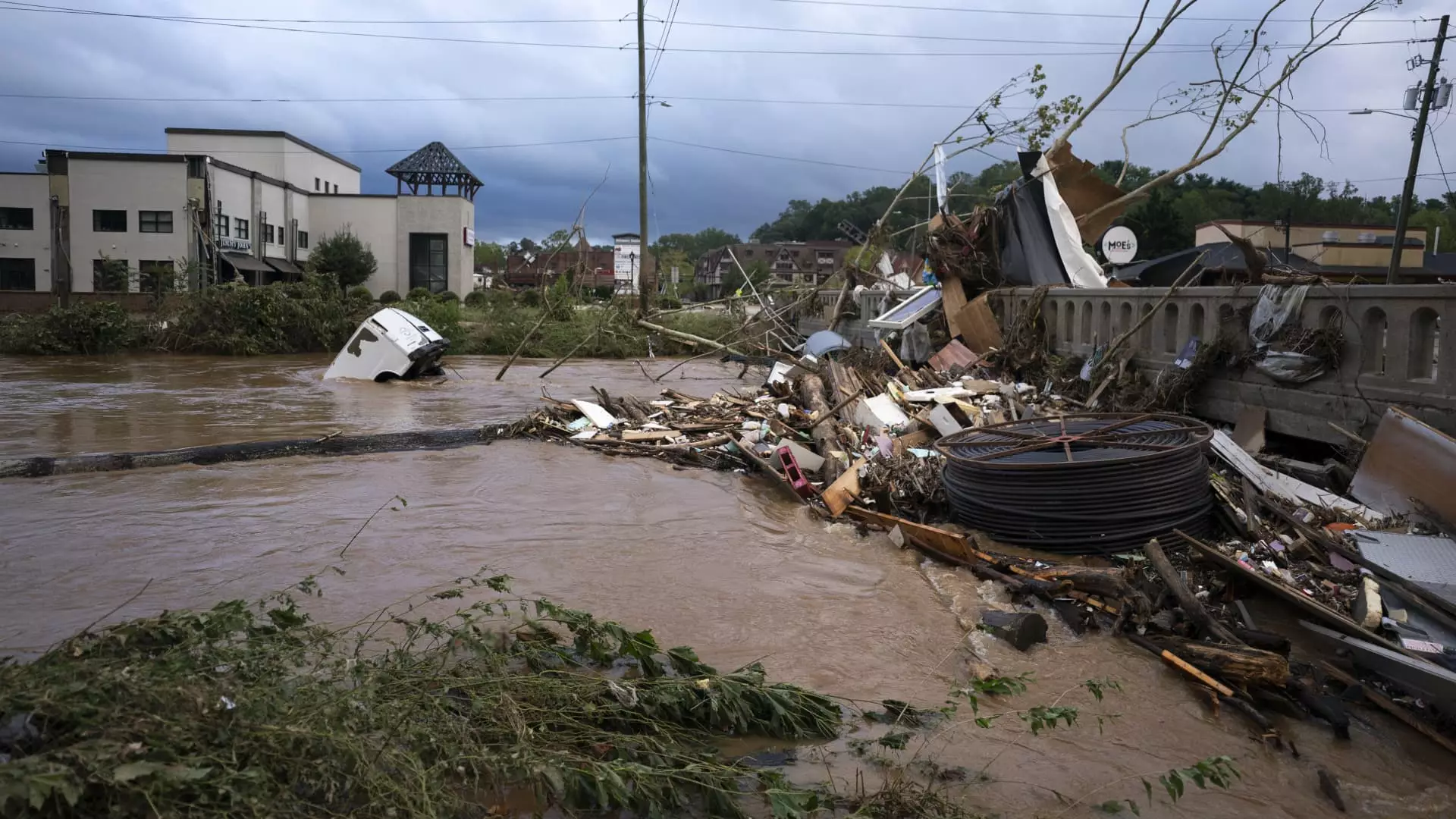In the wake of Hurricane Helene, a devastating storm that impacted several states, authorities are urging citizens to remain vigilant against potential scams that often arise during such crises. Natural disasters create an environment ripe for exploitation, where the vulnerability of affected individuals can lead to various fraudulent schemes. Among these, price gouging stands out as a significant concern, prompting officials to issue warnings as complaints regarding inflated prices surge.
Price gouging refers to the unethical practice of sharply increasing prices for goods and services during emergencies, taking advantage of consumers’ desperation. It’s crucial to distinguish between legitimate market fluctuations and price gouging. In North Carolina, for instance, Attorney General Josh Stein has reported a considerable increase in complaints about inflated prices for basic necessities such as fuel, groceries, and lodging. Despite existing laws designed to combat such practices, the reality remains that unscrupulous vendors will often seize the opportunity to profit off the misfortunes of others.
Stein emphasized the disparity by highlighting that while most local businesses strive to support their communities, a select few capitalize on the crisis. This duality of behavior raises ethical questions about corporate responsibility during disasters and highlights why consumer protections are paramount.
Legal Frameworks: State Variations and Federal Push
In total, 37 states have enacted anti-price gouging laws intended to protect consumers during states of emergency. These regulations activate when a disaster is declared, creating an automatic legal shield against exorbitant pricing. However, it is important to note that the application and enforcement of these laws can vary considerably from state to state. South Carolina Attorney General Alan Wilson elucidated that normal price changes do not constitute gouging, but blatant price hikes—like a jump from $5 to $10 for a case of bottled water—are unequivocally unacceptable.
In a push for fairness on a national level, Vice President Kamala Harris has advocated for a federal ban on price gouging, recognizing its consequences on both small businesses and consumers. Yet, this call for a sweeping change has faced criticism, notably from former President Donald Trump, who asserts that such regulations could inadvertently disrupt the supply chain and affect all individuals involved in the market.
Consumers who notice suspicious pricing should proactively reach out to businesses, expressing their concerns regarding pricing discrepancies. “Be kind but assertive,” suggests Teresa Murray, director at the U.S. Public Interest Research Group. If dialogue proves unfruitful, reporting these violations to the state attorney general is essential. Documentation is key; taking photographs of price tags can serve as evidence for potential investigations.
Additionally, consumers must remain alert not only to price gouging but to various scams that proliferate following a disaster. Fraudulent individuals may impersonate representatives from governmental agencies such as FEMA or the Small Business Administration, seeking to extract personal and financial details under false pretenses. In these scenarios, awareness and caution are paramount.
Recognizing Other Scams: Protecting Yourself in Recovery
Beyond price gouging, other scams are expected to emerge during the recovery phase post-Hurricane Helene. For example, residents should be cautious of door-to-door repair offers, especially from contractors who demand large upfront payments or promise to cover insurance deductibles. Before engaging with any contractor, it is prudent to consult with your insurance company and verify the contractor’s credentials through references and reviews with the Better Business Bureau.
Buying vehicles in the aftermath of the storm presents additional risks; potential buyers must verify the condition of cars to ensure they haven’t been flood-damaged. This can be achieved through resources like the National Insurance Crime Bureau’s VINCheck service, which allows consumers to confirm a vehicle’s history.
Given the humanitarian nature of disaster recovery, many feel compelled to donate to relief efforts. Unfortunately, this inclination can lead to further exploitation through charity scams. State attorneys general caution donors to verify the legitimacy of charitable organizations before making contributions. Websites such as Give.org and CharityNavigator.org offer essential resources to confirm the authenticity of charities and ensure donations make a meaningful impact.
As states gradually recover from Hurricane Helene, the priority must be on safeguarding residents from the additional burden of scams and price gouging. By fostering awareness and promoting ethical practices, both consumers and businesses can contribute to a more secure recovery process. Staying informed is not just a defense against exploitation but a way to ensure that the kindness and resilience of communities shine brighter than the turbulence of disaster.

